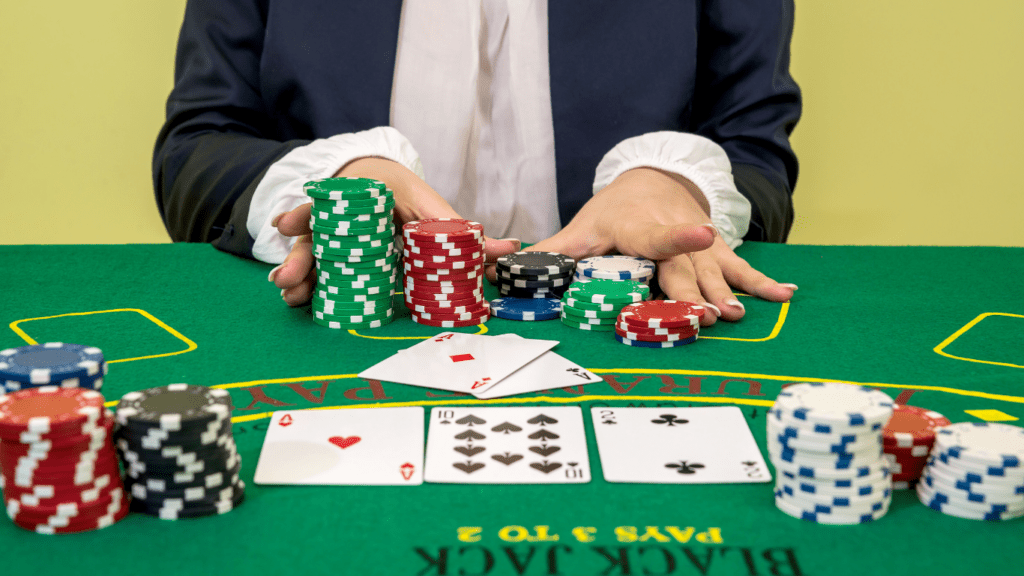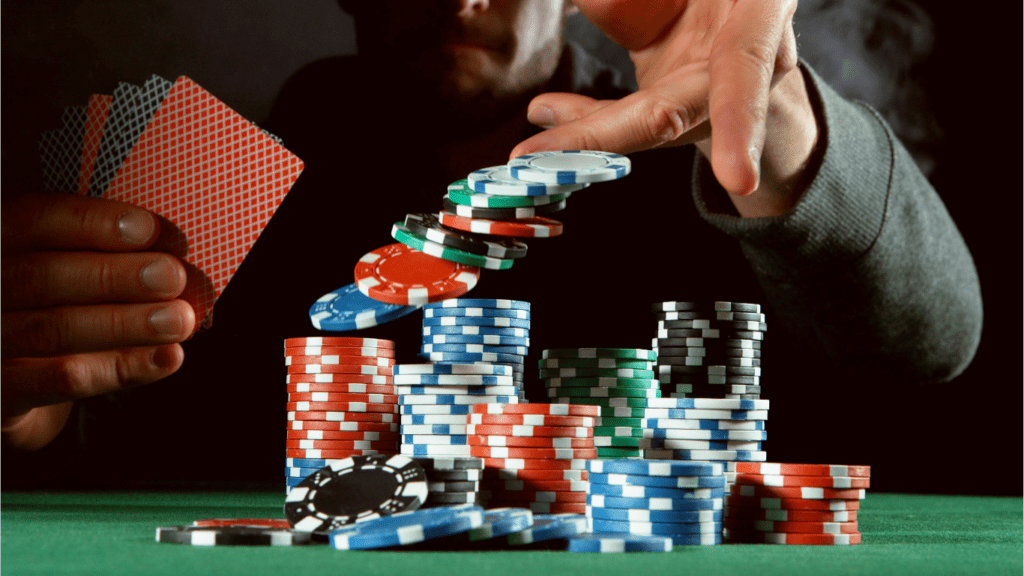Understanding High-Stakes Gambling
High-stakes gambling involves more than just playing for money; it taps into deep psychological and emotional elements. It reflects a unique subset of human behavior dominated by risk, reward, and heightened decision-making.
What Qualifies as High-Stakes Gambling?
High-stakes gambling generally involves significant financial risks, often exceeding amounts typically wagered by the average player. In games like poker, a single bet might range from $10,000 to $1,000,000. In sports betting, high-stakes participants frequently place six- or seven-figure wagers on individual games or events.
Casinos define “high-stakes” by thresholds that qualify players for VIP rooms or private tables. These spaces cater to those willing to gamble sums that could result in extreme financial swings. It’s a domain where financial resources and tolerance for loss align, drawing only a specific type of gambler.
The Thrill of Risk and Reward
The interplay between risk and reward defines the allure of high-stakes gambling. For many bettors, the possibility of substantial wins creates a powerful emotional response. Winning a significant jackpot or pulling off a risky bluff in poker can release high levels of dopamine, amplifying excitement.
Risk-taking, however, isn’t purely about financial gain. Many high-stakes bettors describe the act itself as exhilarating. The uncertainty, combined with their skill set and intuition, fuels an intense connection to the game. While the prospect of losing large amounts is ever-present, it’s often outweighed by the psychological rush associated with the possibility of a big win.
The Psychological Drivers of Big Bettors

High-stakes gambling attracts individuals driven by deep psychological factors. These drivers include personality traits, brain chemistry, and the desire to escape reality.
The Role of Personality Traits
Certain personality traits strongly influence gambling behaviors in high-stakes players. Individuals with high impulsivity or sensation-seeking tendencies often display a preference for risky activities like high-stakes gambling. Those with competitive traits may perceive gambling as a:
- challenge
- combining skill
- luck
These traits contribute to the willingness to bet large sums, where both the risk and the potential reward align with their inherent psychological makeup.
The Influence of Dopamine and Brain Chemistry
- The brain’s reward system significantly affects gambling motivation.
- Dopamine, a neurotransmitter linked to pleasure and reward, surges during gambling, creating feelings of excitement and euphoria.
- For big bettors, the larger the stakes, the greater the dopamine response.
- Over time, frequent gambling with high stakes may lead to reinforcement of this behavior, as players chase the intense neurological highs associated with substantial wins or near wins.
Escaping Reality Through Gambling
For some big bettors, gambling provides an avenue to escape from daily stressors. This psychological escape offers a temporary refuge from reality, where the focus shifts entirely to the game and its inherent unpredictability. The high-stakes environment amplifies this sense of immersion, making it more attractive to those seeking relief from emotional or psychological pressures.
Social and Cultural Influences
Social and cultural elements significantly impact high-stakes gambling behavior. Big bettors often navigate societal expectations and cultural norms that shape their choices and motivations.
Peer Pressure and Social Identity
Peer groups can reinforce gambling behaviors by creating perceived expectations of participation. Regular interactions with high-stakes players, such as in exclusive poker circles or VIP casino lounges, introduce pressure to match or exceed peers’ betting levels. Social identity plays a critical role; many bettors associate their self-perception with their inclusion in elite gambling networks. For instance, wagering significant amounts becomes a way to maintain status within the group. Social media further amplifies this dynamic, with posts showcasing wins or lavish lifestyles encouraging emulation among peers.
Gambling as a Status Symbol
In many cases, high-stakes gambling reflects wealth and success. For big bettors, placing substantial wagers signals financial power and serves as a public display of capability. High-stakes games, such as those found in private casino rooms or international tournaments, provide platforms for affirming and enhancing one’s social standing. Possessing loyalty rewards, like invites to exclusive events or luxury experiences, strengthens this image. This cultural association between gambling and prestige drives individuals to seek recognition, often at the cost of financial prudence.
The Emotional Highs and Lows
High-stakes gambling triggers intense emotional responses, encompassing both the exhilaration of victory and the despair of defeat. These extreme feelings significantly impact how big bettors approach their gambling experiences.
The Euphoria of Winning
Winning in high-stakes gambling generates a surge of euphoria, often driven by the brain’s dopamine release. This chemical flood creates powerful feelings of accomplishment and invincibility, reinforcing the desire to continue gambling. For instance, securing a $250,000 win in a poker game can validate one’s perceived skills and strategies, amplifying confidence. The heightened emotions tied to such victories often make gamblers chase even greater rewards, increasing their risk tolerance over time.
Coping with Big Losses
Significant losses provoke intense emotional distress, ranging from frustration to deep regret. Many high-stakes gamblers experience feelings of self-doubt or helplessness after losing substantial amounts, such as $500,000 on a single wager. To cope, some gamblers rationalize losses as part of the game or use cognitive strategies to detach from financial consequences. However, prolonged losses can lead to anxiety or compulsive behavior, pushing individuals into a cycle of chasing losses to recover emotionally or financially.



 Mark Buxtononics is the Senior Betting Analyst at Gamble Time Hub, bringing sharp analytical skills and a deep understanding of betting markets to the forefront. Specializing in data-driven insights and predictive analysis, Mark delivers in-depth evaluations of sports betting trends, odds movements, and strategic plays. His work helps readers make smarter, more informed decisions across a variety of betting platforms. With a commitment to clarity and accuracy, Mark plays a key role in establishing Gamble Time Hub as a reliable source for expert betting knowledge.
Mark Buxtononics is the Senior Betting Analyst at Gamble Time Hub, bringing sharp analytical skills and a deep understanding of betting markets to the forefront. Specializing in data-driven insights and predictive analysis, Mark delivers in-depth evaluations of sports betting trends, odds movements, and strategic plays. His work helps readers make smarter, more informed decisions across a variety of betting platforms. With a commitment to clarity and accuracy, Mark plays a key role in establishing Gamble Time Hub as a reliable source for expert betting knowledge.

